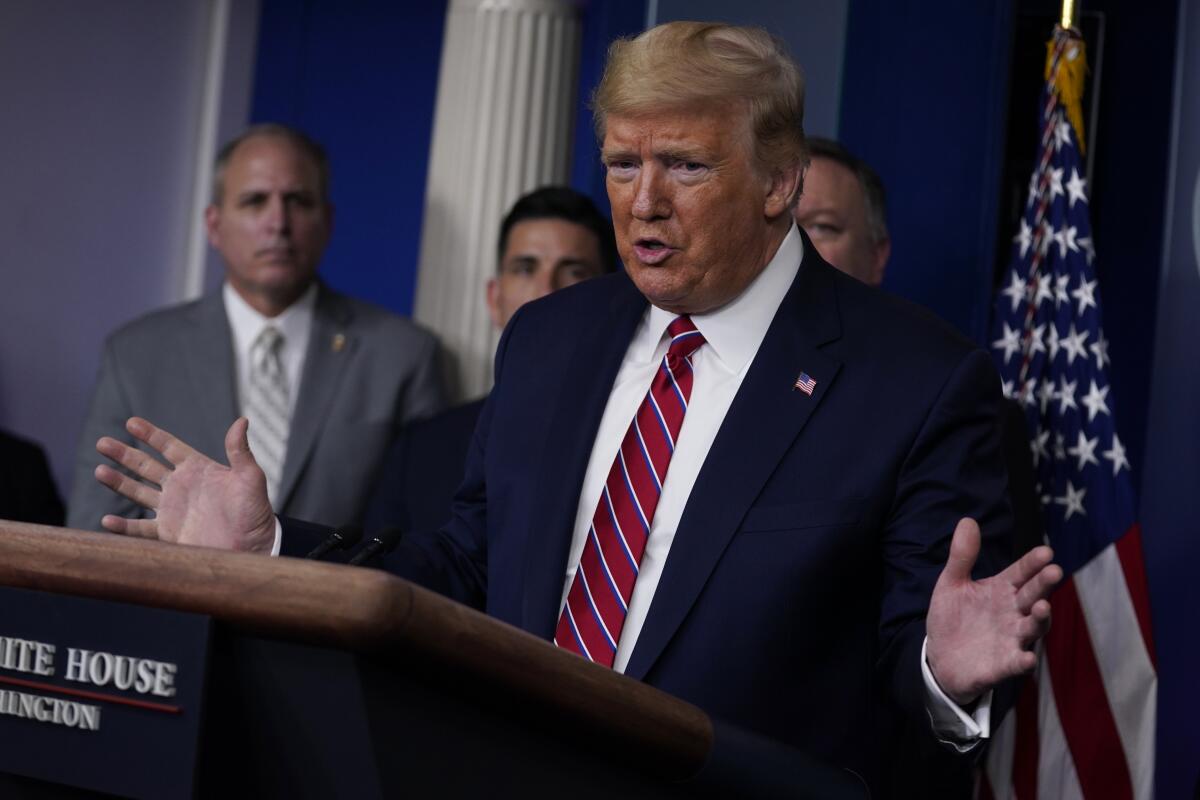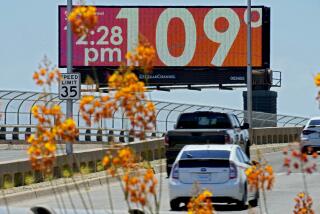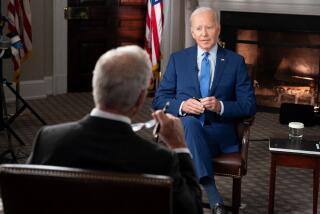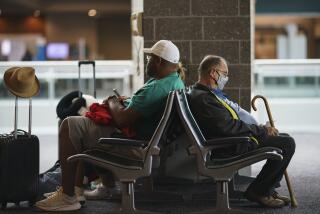Op-Ed: Trump’s overconfidence has always been dangerous. With coronavirus, it’s deadly

Even as the number of confirmed cases of COVID-19 in the United States has zoomed past 64,000, President Trump continues to express confidence. He has gone from optimism in the face of the imminent threat of the coronavirus to suggesting that the pandemic will abate soon and the U.S. economy will be “raring to go” by Easter.
Trump’s optimism stands in sharp contrast to the recommendations of healthcare professionals, who tell us that the worst is yet to come, and that our only chance of containing the virus is by maintaining tight restrictions on business activity, social contact and travel.
Understanding the limits of confidence is key to overcoming this pandemic — and the next. Research on confidence has documented the dangers of being too confident. Overconfident people fail to plan for threats, such as COVID-19. Overconfident leaders make mistakes that put others at risk. Yet my research also shows that people routinely elevate leaders who express greater confidence than is warranted.
Good preparation and effective action are based on truth, not lies, however comforting. Officials do not reduce the risk of tragedy when they maintain, optimistically, that an impending disaster won’t be so bad.
Trump might be an outlier in the number of falsehoods he injects into his optimistic spin, but he’s far from alone in telling the public what he wishes were true. Democratic presidential candidate Sen. Bernie Sanders offers grand promises of government largesse without a clear plan to pay for it. And even Barack Obama swept into the White House on a promise of “hope and change” that set expectations higher than he was able to achieve.
It’s tempting to express frustration with politicians who exaggerate and mislead, but we ought to ask ourselves how it is that we keep choosing those who promise so much more than they deliver.
My research suggests that people routinely select leaders who express greater confidence than their rivals. This reflects our faith that confidence corresponds with performance. Would-be leaders who claim that they can deliver the moon, or bring back the coal industry, or provide free access to excellent healthcare and college education are more compelling. We assume that they will actually accomplish more than those who promise less and express less confidence. In many aspects of life, this faith is justified. Confidence is correlated with performance in many domains.
The perverse consequence when it comes to leaders, though, is that by selecting the most confident we are also very likely selecting the most overconfident. And leaders’ overconfidence creates real risks for the public. As late as March 6, Trump assured Americans that we were in “great shape,” and put off taking urgent preventive action.
When success depends on effort and preparation, greater confidence may actually undermine performance. The students in my classes who are most certain they will ace the exam, and therefore don’t study, are not those with the highest grades. The dieters most confident that they will lose weight are not those who actually achieve their weight-loss goals. The competitors most convinced of the inevitability of victory do not try as hard and are consequently less likely to win. When central bankers are too optimistic about the economy’s future, they may fail to take the necessary actions, such as lowering interest rates, to head off a foreseeable recession.
Trump continues to be optimistic about the country’s ability to recover. Last week, he said, “Our economy is going to go through the roof.” But his optimism looks increasingly like a delusion, with economists bracing for a long recession even after the pandemic is brought under control.
Presidents, parents, coaches and gurus may attempt to encourage us by instilling confidence in our success. But it is possible to have too much confidence. Fooling yourself into believing your success is assured may, paradoxically, undermine the chances of that very success. Having allowed our nation to become infected with Trump’s confidence has made us vulnerable to other, more dangerous infections.
Don A. Moore is a professor at the Haas School of Business at UC Berkeley and author of the forthcoming book, “Perfectly Confident.”
More to Read
A cure for the common opinion
Get thought-provoking perspectives with our weekly newsletter.
You may occasionally receive promotional content from the Los Angeles Times.










